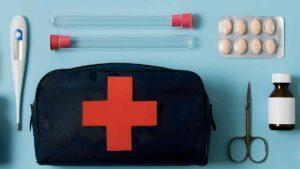Introduction
Medications play an important role in healthcare. However, to remain effective and safe, it is essential to understand how to store them properly and dispose of them safely. This article describes the best practices for storing medications to maintain their effectiveness and the appropriate ways to dispose of unused or expired medications to protect both health and the environment.
Fundamental Rules for Medication Storage
Store Medications at the Appropriate Temperature
One of the most important factors in storing medications is temperature. Most pharmaceuticals should be kept at a specific temperature, generally between 15°C and 30°C. Carefully read the label to follow the recommended storage conditions.
Keep Medications in a Dry Place
Medications should be stored in dry places to avoid moisture, which can affect their efficacy. Avoid storing them in places with high humidity, such as bathrooms.
Protect Medications from Light
Some medications are sensitive to light and should be stored in opaque containers or cabinets to prevent deterioration.
Keep Medications in Their Original Packaging
Store medications in their original packaging so that identification and dosage information can be easily found.
Keep Medications Out of Reach of Children
Ensure that medications are stored in a location that is out of reach of children, such as a locked cabinet or box. Child-resistant packaging is recommended.
Respect Expiration Dates
Never consume medications past their expiration date, as their effectiveness may be reduced and they could become dangerous.
Specific Medication Storage Locations
- Refrigeration: Some medications, such as liquid antibiotics and insulin, need to be stored in the refrigerator. Follow the manufacturer’s instructions and avoid freezing.
- Humidity-Sensitive Medications: Medications like effervescent tablets should be kept in sealed containers to prevent mold growth.
- Opioid Analgesics: Medications such as oxycodone can be abused and should be stored in a secure location.
- Pet Medications: Store pet medications safely, out of reach of children and other animals.
Best Practices for Medication Disposal
Do Not Flush Medications
Do not flush unused or expired medications down the toilet or sink as this can contaminate the water supply and environment.
Use Medication Return Programs
Many pharmacies and medical facilities offer medication return programs that allow you to safely return unused medications.
Follow Specific Disposal Instructions
Always read the medication’s disposal instructions, as some may have specific recommendations.
Deactivate Opioids
Some opioids can be deactivated with special kits available at pharmacies, making them less likely to be abused.
Household Disposal
If no return option is available, mix unused medication with used coffee grounds or cat litter before disposing of it in the trash. Seal the mixture in a bag before throwing it away.
Consult Your Pharmacist
If you have questions about the safe disposal of your medications, contact your pharmacist for specific and helpful advice.
Raising Awareness on Safe Medication Storage and Disposal
Public Education
Public education campaigns are essential to raise awareness of the risks associated with improper medication storage and disposal. Governments and health institutions should play an active role in this.
Continuous Patient Education
Healthcare professionals should continue to inform patients about proper medication storage and disposal when prescribing any medication.
Medication Recycling
Research is ongoing in many regions on pharmaceutical recycling, which involves reconditioning unused medications and distributing them to those in need.
Conclusion
Proper storage and disposal of medications are important aspects of responsible health management. By practicing good storage methods, you can ensure that your medications remain effective, useful, and safe. Appropriate disposal of unused or expired medications helps protect the environment and prevent medication abuse. With public education and awareness, we can all contribute to ensuring that medications are used safely and responsibly for the benefit of our health and our planet.




